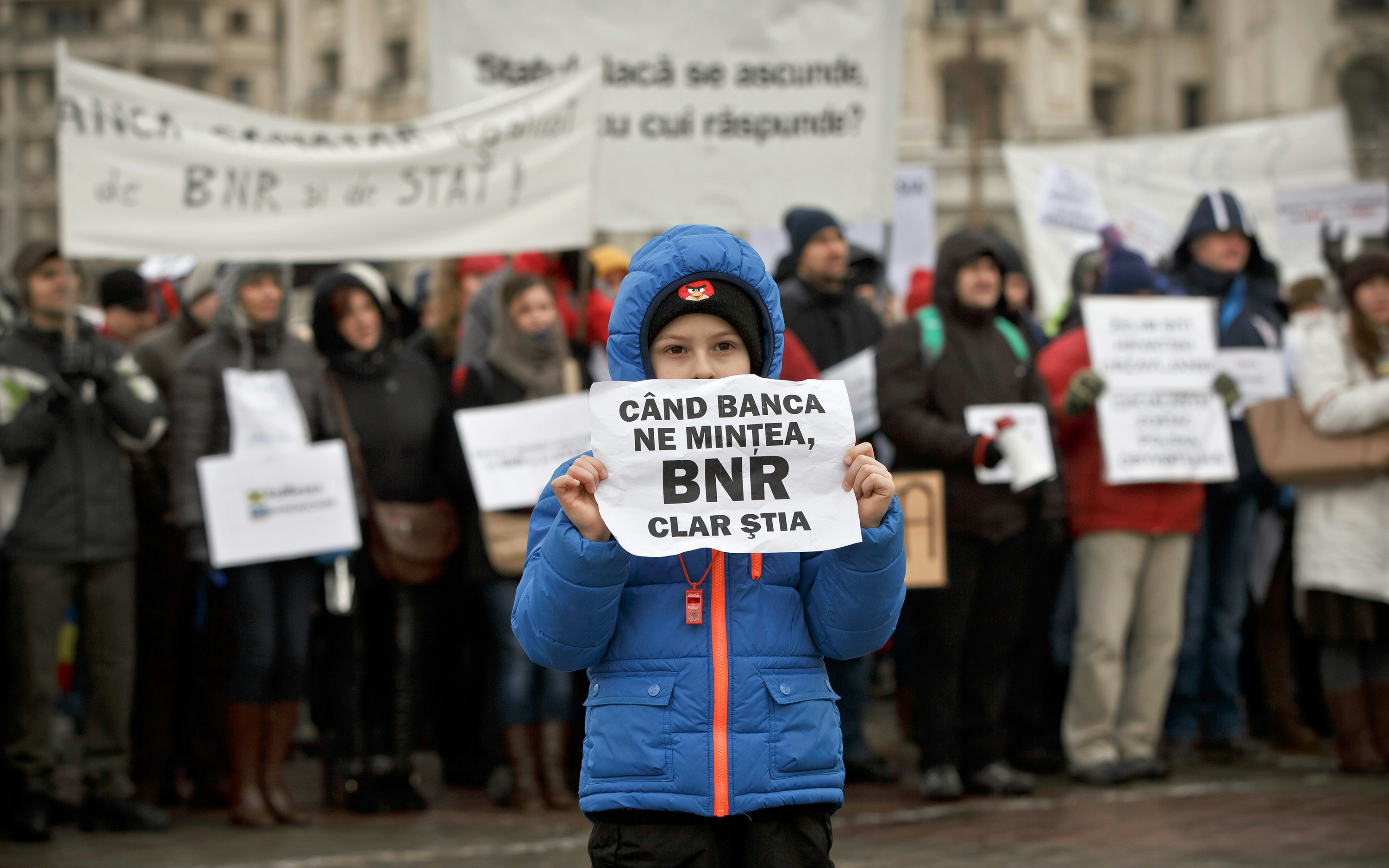Al-Nashiri v. Romania
Romania participated in rendition, secret detention, and ill-treatment at CIA "black-site" prison
Sometime between June 6, 2003, and September 6, 2006, Romania hosted a secret CIA prison code-named "Bright Light" in the basement of a government building in Bucharest where Abd al-Rahim Husseyn Muhammad al-Nashiri was held incommunicado and ill-treated before being rendered out of the country. Al-Nashiri continues to be held at Guantánamo Bay, where he now faces the prospect of an unfair trial by a military commission and if convicted, the death penalty.
Facts
Abd al-Rahim Husseyn Muhammad al-Nashiri is a Saudi national who is the victim of a joint U.S.-Romanian rendition and secret detention operation. In October 2002, al-Nashiri was captured in Dubai, UAE, and secretly transferred to CIA custody. He was taken to a secret CIA prison in Afghanistan known as the “Salt Pit,” and then to another “black site” prison in Bangkok, Thailand, where he was waterboarded. On or about December 5, 2002, the CIA “rendered” al-Nashiri to yet another secret prison in Poland, where he was subjected to mock executions among other torture tactics. Sometime after June 6, 2003, Romania assisted the CIA in landing a secret flight that brought al-Nashiri to Bucharest. Romania permitted the CIA to hold him incommunicado in a secret prison codenamed “Bright Light”, reportedly located in the basement of a Bucharest government building used as the National Registry Office for Classified Information (ORNISS). At the Bright Light facility, detainees were reportedly subjected to mistreatment including sleep deprivation, water dousing, slapping, or forced to stand in painful positions. Sometime before September 6, 2006, Romania assisted the CIA in transferring al-Nashiri out of the country on another secret flight.
It was not until September 2006 that the United States government first acknowledged that the CIA had secretly detained al-Nashiri overseas and that he had since been transferred to U.S. custody in Guantánamo Bay.
A heavily redacted transcript of a 2007 closed proceeding held in Guantánamo Bay reveals that al-Nashiri said: “From the time I was arrested five years ago, they have been torturing me. It happened during interviews. One time they tortured me one way and another time they tortured me in a different way.” Al-Nashiri’s own descriptions of the torture methods applied to him by the U.S. government are considered secret by the U.S. government and are blacked out in the transcript. He does, however, state: “Before I was arrested I used to be able to run about ten kilometers. Now, I cannot walk for more than ten minutes. My nerves are swollen in my body.”
Al-Nashiri remains imprisoned in Guantánamo Bay. On 20 April 2011, United States military commissions prosecutors brought charges against him stating their intent to seek the death penalty in his case.
Open Society Justice Initiative Involvement
The Justice Initiative is acting as counsel on behalf of al-Nashiri in proceedings before the European Court of Human Rights against Romania. The application was filed on August 2, 2012.
Arguments
Romania’s treatment of al-Nashiri violates a range of provisions of the European Convention on Human Rights.
Il-treatment and unlawful detention in Romania: Romania enabled al-Nashiri's ill-treatment and incommunicado detention on Romanian territory, contrary to Article 3 (torture and ill-treatment) and Article 8 (physical integrity). It also violated Article 5 (liberty) by permitting his incommunicado detention there.
Transfer out of Romanian territory: The Romanian government assisted in al-Nashiri’s transfer out of Romania, despite the real risk that he would be subjected to the death penalty, which is probibited under Article 2 (right to life), Article 3, and Protocol 6 (abolition of the death penalty); despite the real risk of further ill-treatment in U.S. custody (Article 3); despite the real risk of further prolonged arbitrary detention (Article 5); and despite the real risk of his being subjected to a flagrantly unfair trial (Article 6, right to a fair trial).
Failure to Conduct an Effective Investigation: By failing to conduct a prompt and effective investigation into the secret prison and the associated violation of al-Nashiri’s rights, Romania violated the duty to investigate violations of Articles 2, 3, 5, and 8, as well as his right to an effective remedy under Article 13.
Right to Truth: The Romanian government’s refusal to acknowledge, investigate, and disclose details of al-Nashiri’s detention, ill-treatment, enforced disappearance and rendition violates his and the public’s right to truth under Articles 2, 3,5,10 and 13.
In a unanimous ruling, the court found that al-Nashiri’s treatment involved:
- Violations of Article 3 (prohibition of torture) of the European Convention on Human Rights, because of the Romanian Government’s failure to effectively investigate al-Nashiri’s allegations and because of its complicity in the CIA’s actions that had led to ill-treatment
- Violations of Article 5 (right to liberty and security), Article 8 (right to respect for private life), and Article 13 (right to an effective remedy) in conjunction with Articles 3, 5 and 8
- Violations of Article 6 § 1 (right to a fair trial within a reasonable time), and Articles 2 (right to life) and 3 taken together with Article 1 of Protocol No. 6 (abolition of the death penalty) because Romania had assisted in al-Nashiri’s transfer from its territory in spite of a real risk that he could face a flagrant denial of justice and the death penalty.
The Court ordered Romania to pay al-Nashiri €100,000 in respect of non-pecuniary damages.
It also recommended that Romania conclude a full investigation into al-Nashiri’s case as quickly as possible and, if necessary, punish any officials responsible. The country should also seek assurances from the United States that al-Nashiri will not suffer the death penalty.
The Justice Initiative submits recommendations to the Committee of Ministers with regard to Romania’s failure to implement the European Court for Human Rights’ judgment.
The European Court of Human Rights rules unanimously against Romania.
The court rejects Romania's request to appeal the judgment before European Court's Grand Chamber.
A hearing is held before the nine-judge Chamber of the European Court of Human Rights.
An application is filed before the European Court of Human Rights.
A criminal complaint on behalf of al-Nashiri is filed before the Romanian General Prosecutor.
Related Cases
Al-Nashiri v. Poland
The ECHR ruled in favor of Abd al-Rahim al-Nashiri, finding that Poland had allowed his illegal rendition, detention and torture at a secret prision run by the CIA.
El-Masri v. Macedonia
The European Court of Human Rights ruled in favor of Khaled El-Masri in his complaint over Macedonia's involvement in his extraordinary rendition and torture by the CIA.
Related Work
Europe’s Human Rights Court Shines More Light on the CIA’s Black Site Torture Program
A ruling from the European Court of Human Rights requires Romania to finally acknowledge that it hosted a secret CIA prison on its territory between 2003 and 2005.

Time for Romania to Face the Truth over Secret CIA Prison
For the sake of its future, Romania must face up to its role in enabling abuses at a secret basement prison that the CIA codenamed "Bright Light".
Using Human Rights to Challenge a Home Repossession Order in Romania
A Romanian court is being asked whether the safeguards of the European Union's rights charter apply when people face the loss of their home, after falling into arrears on mortgage payments.
